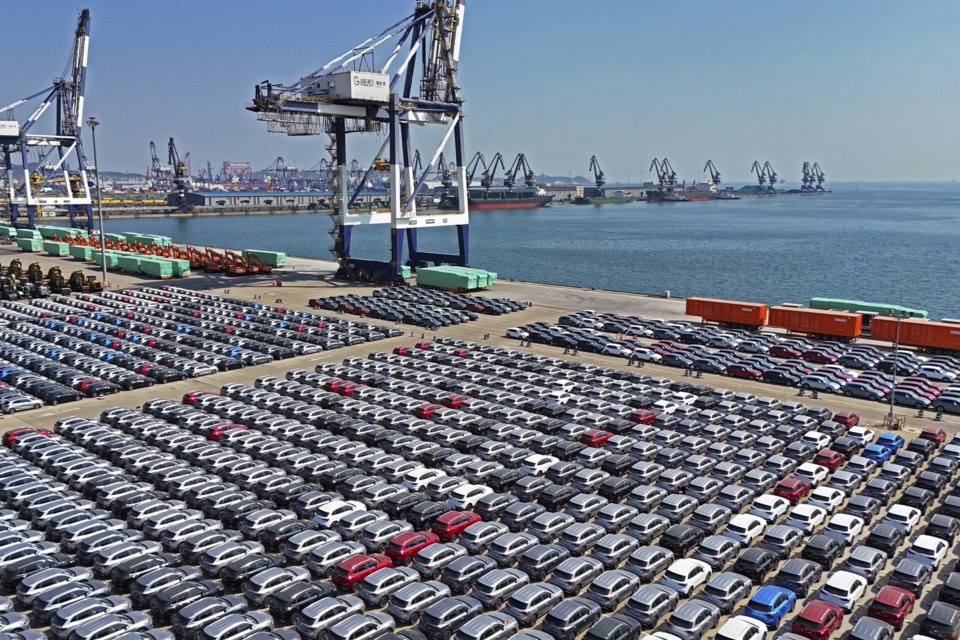BEIJING (AP) — announced Friday that it will raise tariffs on U.S. goods from 84% to 125% — the latest salvo in an escalating trade war between the world's two largest economies that has rattled markets and raised fears of a global slowdown.
While U.S. President Donald Trump for other countries, he raised tariffs on China and they now total 145%. China has denounced the policy as “economic bullying" and promised countermeasures. The new tariffs begin Saturday.
Washington's repeated raising of tariffs “will become a joke in the history of the world economy,” a Chinese Finance Ministry spokesman said in a statement announcing the new tariffs. “However, if the U.S. insists on continuing to substantially infringe on China’s interests, China will resolutely counter and fight to the end.”
China’s Commerce Ministry said it would file another lawsuit with the World Trade Organization against the U.S. tariffs.
“There are no winners in a tariff war,” Chinese leader Xi Jinping said during a meeting with the Spanish Prime Minister Pedro Sanchez, according to a readout from state broadcaster CCTV. “For more than 70 years, China has always relied on itself ... and hard work for development, never relying on favors from anyone, and not fearing any unreasonable suppression.”
Trump's have and led some to warn that the U.S. could . There was some relief when Trump paused the tariffs for most countries — but concerns remain since the U.S. and China are the world's No. 1 and No. 2 economies, respectively.
“The risk that this escalating trade war tips the world into a recession is rising as the two largest and most powerful countries in the world continue to punch back with higher and higher tariffs,” Jennifer Lee, a senior economist at BMO Capital markets, wrote Friday. “No one truly knows when this will end.”
Chinese tariffs will affect goods like soybeans, aircrafts and their parts and drugs — all among the country's major imports from the U.S. Beijing, meanwhile, from some American companies last week, and put more export controls on rare earth minerals, critical for various technologies.
The United States' , meanwhile, include electronics, like computers and cell phones, industrial equipment and toys — and consumers and businesses on those products, with tariffs now at 145%.
Trump announced on Wednesday that China would face 125% tariffs, but he did not include a 20% tariff on China tied to its role in fentanyl production.
White House officials hope the import taxes will create more manufacturing jobs by bringing production back to the United States — a politically risky trade-off that could take years to materialize, if at all.
___
This story has been updated to correct the attribution of the quote about the U.S. raising tariffs to a spokesman from the Finance Ministry spokesman, not the Commerce Ministry.
The Associated Press



